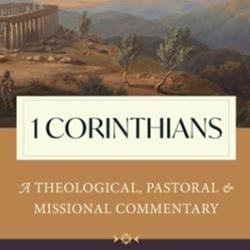EUGENE PETERSON’S passing reminded me of the monumental importance of passing the torch (and those looking for someone from which to receive it).
Dallas Willard passed it before he left this earth. I hope the same is true for Eugene. Here’s the article I wrote about it earlier this year.
—
The phrase “passing the torch” is a commonly used metaphor to depict the act of passing on a charge or responsibility to another individual. The metaphor comes from the ancient Greek torch races where one runner passed a lighted torch to another runner who carried the torch farther.
I’ve been giving a lot of thought to the idea of passing the torch when it comes to the Lord’s work. Over the last five years, a number of God’s choicest servants have passed on. And a few of them never passed the torch on to a younger soul.
This is a great tragedy. And it’s one of the reasons why the Lord’s highest work has only moved in millimeters (instead of miles).
Last month, I was having lunch with a friend who told me about a dream Myles Munroe had before he passed away. Myles saw an Olympic runner lying in a coffin with his hands clutched to a baton. His fists were holding the baton so tightly that it was no small task to pry it from his hands.
The point of the dream was that many of the Lord’s servants refuse to pass the torch to the younger generation.
When my friend told me this story, he wasn’t aware that this subject had been on my mind all year.
A number of the Lord’s choicest vessels will pass on in the coming days. The question is, will they pass the torch on to another servant of God or will it die in their hands?
Let me make two observations about that question:
Observation 1: Whenever a servant of God refuses to pass the torch, it’s virtually always because of one of three reasons.
* Arrogance. The servant thinks too highly of himself. His inflated view blinds him from recognizing and honoring the Lord’s calling, gifting and operation in others. Especially the person to whom God has called him to hand the torch. So in his eyes, no one is “worthy” enough (which reveals a stunning lack of self-awareness).
* Jealousy. The servant doesn’t wish to share the glory with anyone else. When others demonstrate signs of God’s anointing and favor, instead of cheering them on, they turn green.
* Ignorance. The idea of passing on the knowledge, experience, and charge of their ministries to someone younger never crosses their minds. So it all dies with the older servant of God.
By contrast, servants of God who have leveled their egos at the cross – including the jealousy and arrogance that goes with it – are eager to pass the torch on.
Observation 2: A servant of God who is unwilling to pass the torch will often have it taken from them because the person whom God destined to carry it will end up seizing it.
While God’s highest and best is for the older to willingly pass the torch on to the younger, the call of God will sometimes compel the younger to grasp the torch nonetheless. Even though this isn’t the ideal (and contains its own drawbacks), it’s far better for the advance of the kingdom than allowing the torch to disappear in the grave.
I, therefore, wish to issue an indelible challenge to every servant of God, both young and old (for the former will become the latter one day).
If God has handed you a torch to bear during your lifetime, make the decision now that you will not allow arrogance, jealousy, or ignorance to keep you from passing it on to someone else. If you die with it in your hands, it only reveals one thing: You never understood that it wasn’t yours to begin with.
And to all younger servants of God – find an older laborer in the Lord’s vineyard whom you respect, who has a unique contribution and God’s favor on their life, and be intentional about reaching out to them directly, so when the time comes for them to pass the torch on, you will be on their radar.













